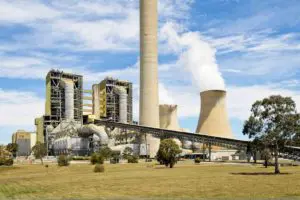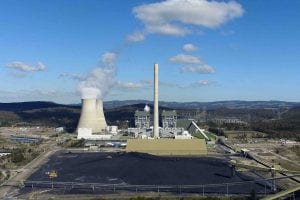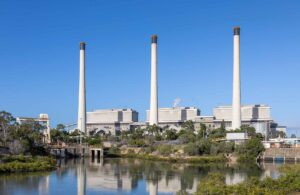Prime Minister Scott Morrison has responded to the bleak Intergovernmental Panel on Climate Change (IPCC) report by seeking to shift blame onto developing countries, particularly China, and refusing to announce any increase in Australia’s short term targets.
In an extraordinary intervention following the release of the IPCC report, Morrison suggested it wasn’t “the Australian way” to take the initiative on climate action.
“It is not good enough for it just happening to Australia and the United States and in Europe. It must happen in these other countries and they must have prosperity otherwise we will not fix this. That is the Australian way,” Morrison told a press conference on Tuesday.
On Monday, the IPCC delivered its latest authoritative assessment of the current state of climate science, delivering a stark warning and a “code red” that the world is already on track to exceed 1.5°C of warming well before 2040, thanks to the continued burning of fossil fuels.
The report made dire predictions of the potential impact of climate change on Australia, where land temperatures had already increased by an average 1.4°C and was on track to experience floods, droughts and bushfires of increased severity and frequency.
Scientists used the report – ‘a loud alarm bell‘ – to warn that irreversible changes to the Earth’s climate were already occurring and that delays in reducing emissions would directly lead to worsening climate impacts. They said urgent action was imperative.
Morrison and federal energy and emissions reduction minister Taylor fronted the media to insist that Australia was doing more than other countries and would not commit to making any changes to Australia’s emissions reduction targets, and trotted out their usual slogans. At the same time, the duo pushed responsibility for climate action onto poorer countries.
“Unless we can get the change in the developing countries of the world, then what we are seeing in the IPCC reports will occur,” Morrison said.
“And so we need to take a different approach. We need to focus on the technological breakthroughs that are necessary to change the world and how we operate. And make sure that is done right across the world. Not just in advanced countries, it’s not enough.”
“[US special climate envoy John Kerry] said if America reduced its emissions to zero, and China kept going where it was, well we wouldn’t make a lick of difference, basically. That’s the point. We need a solution that addresses the real commercial challenges of developing countries to solve this problem.
“So it’s not about punishment. It’s not about politics. It’s about technology and technology that works in countries that need it to transform their economies, provide jobs and livelihoods for people, to ensure they can prosper as we have in advanced countries like ours,” Morrison added.
By painting the challenge of climate change as being an issue about developing countries, both Morrison and Taylor attempted to avoid responsibility for Australia’s need to act on climate change and that the Morrison government’s meagre commitments were sufficient.
Taylor said that the federal government would publish its usual annual update to Australia’s emissions projections before the end of the year but refused to commit Australia to stronger emissions reduction targets.
“We are already on track to meet and beat our 2030 targets. We update our projections every year. We have an extraordinary track record of beating those projections, and we will update them this year as we always do,” Taylor said.
But vice-chair of the IPCC and director of the Institute for Climate, Energy and Disaster Solutions at the Australian National University, professor Mark Howden told ABC Radio National that the Morrison government’s 2030 targets were not consistent with limiting global warming to safe levels, and were not consistent with meeting the goals of the Paris Agreement, to which Australia is a signatory.
“There’s no real evidence that our current policy settings are actually working to drive down our emissions,” Howden told the ABC.
“To actually go on to the emissions pathway that’s consistent with 1.5 or two degrees, what the science shows us is we need to be reducing our emissions by around about 45 per cent or more by 2030. And pushing hard to reduce that to net zero before 2050.”
“26 to 28 per cent is not consistent with keeping temperatures global temperatures down to two degrees or to 1.5 degrees,” Howden added.
The Morrison government has only formally committed to an emissions reduction target for 2030, reducing emissions by between 26 to 28 per cent from 2005 levels – but has refused to commit to a specific timeline for reaching zero net emissions.
Many of Australia’s major trading partners, including Japan, South Korea, the United Kingdom, the United States and the European Union have all committed to zero emissions targets for 2050. China will also aim to reach zero net emissions by 2060.
Speaking at the NSW Smart Energy Summit on Tuesday, federal Labor’s spokesperson for energy and climate, Chris Bowen, said that Australia would not be able to progress on climate action while the Morrison government remained in power.
“His government is so divided and dysfunctional on the key question of climate policy that he cannot even commit his government to the essential starting point: net zero by 2050,” Bowen told the summit.
“The IPCC report is about our planet, but of course it also provides key messages for our country.”
“Australians have plenty to lose from lack of action on climate change and huge amounts to gain from acting. This is the key to winning the climate change debate in Australia,” Bowen added.







